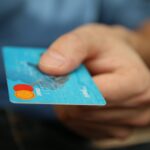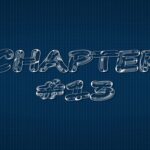Chapter 13 Bankruptcy – How do Creditors get Paid?
Secured Debts
In most cases, you will make payments to secured creditors (e.g. mortgage, auto loan) outside of the bankruptcy just as you normally would.
If you qualify, you may seek to reduce the amount of principle you owe on a vehicle or other secured asset (other than a home). For example, if your vehicle was purchased more than 910 days before filing the bankruptcy and you are upside down on the vehicle (negative equity), you may file a motion to reduce the secured balance down to the current value of the vehicle. For example, if you owe $10,000 on a vehicle worth only $5,000, you may be able to reduce the secured loan amount down to $5,000 through what is known as a cram-down. Be sure to speak to your attorney if you are upside down on your vehicle.
Unsecured Debts
These are those debts for which you did not pledge any property (auto loan, mortgage) as collateral. These creditors are paid directly from the chapter 13 trustee. They must file a claim to be paid. Any remaining balances at the end of the plan, are discharged.
Priority Debts
Some debts must be paid in full and are paid before other debts. These are called priority debts. Your plan must provide for payment in full of these debts in addition to the minimum distribution to unsecured creditors (class IV). Priority debts include some taxes (state and federal), wage claims of employees, alimony and child support. Certain other non-dischargeable debts are treated as priority debts in a chapter 13. Discuss the dischargeability of your various debts with an attorney. This is not an easy area of law to interpret on your own. The statutes may appear straight-forward, however, it is the judicial decisions (court cases) which bring the various statutes to life.
You should ensure that you have filed all of your tax returns (state and federal) before you file bankruptcy. Some tax debts are non-priority and are treated the same as other unsecured creditors. If you have a high amount of tax debt, a chapter 13 may provide the relief you need.
Student Loans
Student loans may be treated the same as other unsecured creditors when it comes to plan payments. This means your student loan creditors receive a pro rata share of your plan payments. You are not required to pay on the student loans outside the plan. This may not be ideal if you owe a large amount of student loan debt because the interest on your student loans continues to accumulate during your chapter 13. At the very least, you want to ensure the interest on the student loans is being paid. You are responsible for any remaining balance on the student loans after your chapter 13 plan is completed. If you are in a chapter 13 plan for five years and are only paying a small portion to your student loans within your plan, your student loan balances may increase during your plan. To prevent this, we will seek to provide preferential treatment for your student loans.



